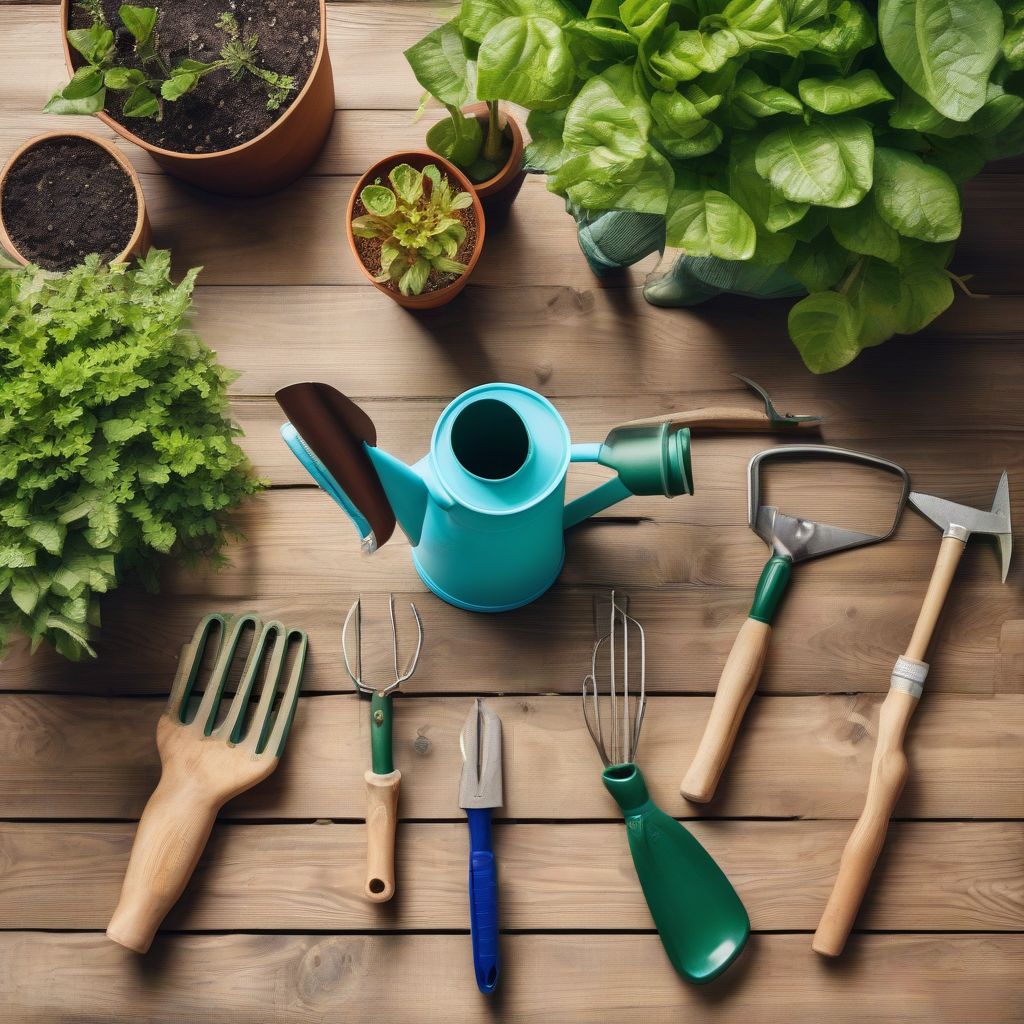Have you ever strolled through your garden, admiring the vibrant blooms and lush greenery, only to be struck by the thought of the chemicals lurking beneath the surface? In an era where we’re increasingly conscious of what we put in our bodies, it’s only natural to extend that awareness to our gardens. The good news is, you can cultivate a thriving garden without relying on synthetic chemicals. This guide will equip you with the knowledge and tools to embrace organic gardening practices and reap the rewards of a healthier, more sustainable garden.
Understanding the Impact of Chemical Gardening
Before we delve into the how-to, let’s shed light on why avoiding chemicals in your garden is beneficial. Conventional gardening often involves using synthetic pesticides, herbicides, and fertilizers. While these products can deliver quick results, they come with potential drawbacks:
- Environmental Harm: Chemical runoff from gardens can pollute waterways, harming aquatic life and contaminating drinking water sources.
- Soil Degradation: Prolonged use of chemical fertilizers can disrupt the delicate balance of microorganisms in the soil, leading to reduced fertility over time.
- Health Concerns: Exposure to pesticides has been linked to various health issues, particularly for children and pets.
Embracing Organic Alternatives: Safeguarding Your Garden and Health
The beauty of organic gardening lies in its harmony with nature. By adopting these eco-friendly practices, you create a garden that thrives without compromising your well-being or that of the environment. Here’s your roadmap to a chemical-free oasis:
1. Nurture Your Soil: The Foundation of a Healthy Garden
Healthy soil is the cornerstone of organic gardening. Rich, fertile soil provides essential nutrients for your plants, enabling them to flourish. Focus on:
- Composting: Transform kitchen scraps and yard waste into nutrient-rich compost, a gardener’s black gold. This natural fertilizer improves soil structure, drainage, and nutrient content.
- Organic Fertilizers: Opt for natural alternatives like compost, manure, bone meal, or seaweed extract to replenish vital nutrients without the use of harsh chemicals.
- Cover Cropping: During the off-season, plant cover crops like clover or rye to prevent erosion, suppress weeds, and add organic matter to the soil.
2. Welcome Beneficial Insects: Your Garden’s Tiny Guardians
In the world of organic gardening, beneficial insects are your allies. These tiny creatures help control pest populations naturally, reducing the need for pesticides. Attract them to your garden by:
- Planting Companion Plants: Intercropping plants like marigolds, nasturtiums, and lavender can deter pests and attract beneficial insects like ladybugs and lacewings.
- Providing Water Sources: A shallow dish with water and pebbles creates a welcome drinking spot for bees and other pollinators.
- Avoiding Broad-Spectrum Pesticides: These chemicals can harm beneficial insects along with pests. Opt for targeted treatments only when necessary.
3. Practice Natural Pest Control: Safeguarding Your Plants
While a completely pest-free garden might be a utopian dream, you can effectively manage pests organically. Here’s how:
- Physical Barriers: Protect vulnerable plants from slugs and snails with copper tape, diatomaceous earth, or crushed eggshells. Netting can deter birds and larger pests.
- Homemade Insecticidal Soaps: A simple solution of water and dish soap can effectively control soft-bodied insects like aphids and mites.
- Neem Oil: This natural extract disrupts the life cycle of many pests, acting as a repellent, insecticide, and fungicide.
4. Water Wisely: Conserving Resources, Promoting Growth
Efficient watering practices conserve water and promote healthy root development:
- Water Deeply and Less Often: Encourage deep root growth by watering deeply when the soil is dry a few inches below the surface.
- Mulch, Mulch, Mulch: A layer of organic mulch helps retain soil moisture, suppresses weeds, and moderates soil temperature.
- Choose Drought-Tolerant Plants: Opting for plants adapted to your region’s climate can reduce the need for frequent watering.
 Essential Tools for Organic Gardening
Essential Tools for Organic Gardening
5. Rotate Your Crops: Outsmarting Pests and Diseases
Crop rotation is a time-tested technique that disrupts pest and disease cycles, reducing their impact on your garden. By alternating plant families in a specific area each year, you prevent the buildup of soilborne pathogens and confuse pests that target specific plants.
Reaping the Rewards: Benefits of an Organic Garden
Transitioning to organic gardening might seem daunting initially, but the rewards are well worth the effort. You’ll enjoy:
- Safer Produce: You’ll have peace of mind knowing your fruits, vegetables, and herbs are free from harmful chemical residues.
- Improved Flavor: Organically grown produce often boasts richer, more complex flavors compared to conventionally grown counterparts.
- Environmental Stewardship: You’ll actively contribute to a healthier planet by protecting pollinators, conserving water, and reducing chemical pollution.
- Increased Biodiversity: An organic garden becomes a haven for beneficial insects, birds, and other wildlife, enhancing the overall biodiversity of your surroundings.
Conclusion: Nurturing Your Garden, Nurturing Your Well-being
Embracing organic gardening is a journey of learning, experimenting, and connecting with nature. By adopting these practices, you’re not just cultivating a garden; you’re fostering a healthier ecosystem for you, your family, and the planet. Remember, every step you take towards a chemical-free garden, no matter how small, makes a difference.
Do you have any tips or tricks for maintaining an organic garden? Share your experiences in the comments below! For more insights into organic gardening, explore our articles on How to Keep Your Garden Free From Pests and Diseases and How to Attract Beneficial Insects to Your Organic Garden.
[amazon bestseller=”organic gardening”]
